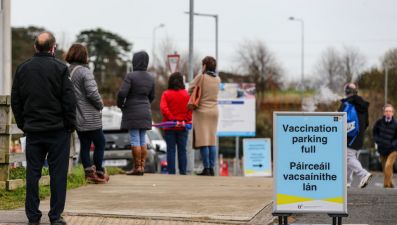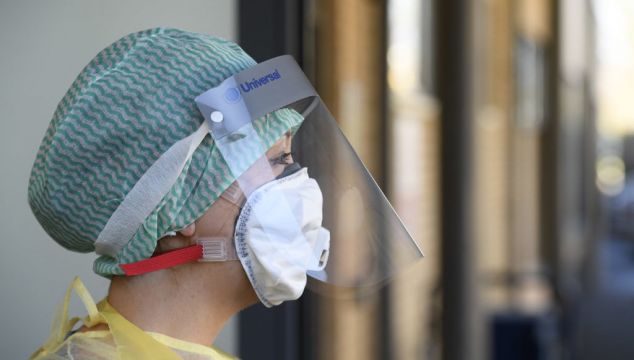A further 17,071 cases of Covid-19 have been confirmed by the Department of Health.
As of 8am on Sunday morning, 717 Covid-positive patients were in hospital, of whom 87 were in intensive care.
On Sunday, Minister for Health Stephen Donnelly said that the country begins 2022 in a “stronger position thanks to vaccines and effective new treatments”.
“Our case numbers are high and concerning, but good to see the rate of hospitalisations has fallen dramatically compared to this time last year,” he tweeted.
Mr Donnelly said that the Government had “invested a lot in building capacity”.
He said: “More ICU beds will open this year and I brought a proposal to Cabinet to increase overall critical care capacity to 446 beds. Our legacy deficit is being addressed, and we are funding as many ICU beds as the HSE can open.”
Ireland has experienced record case numbers in recent days, sparked by the spread of the Omicron variant.
HSE chief executive Paul Reid tweeted on Sunday: “Early days yet, but let’s all hope and plan that with the great efforts of the public, our testers and tracers, vaccination teams and all healthcare professionals will mean that at some stage we can all look back on Omicron.”
He added: “We’re not there yet but these actions will benefit.”
Early days yet, but let's all hope & plan that with the great efforts of the public, our testers & tracers, vaccination teams & all healthcare professionals will mean that at some stage we can all look back on #Omicron. We're not there yet but these actions will benefit.@HSELive
Advertisement— Paul Reid (@paulreiddublin) January 2, 2022
Healthcare staff
Amid the spread of Omicron, Covid-19 infection rates among healthcare staff in Irish hospitals has doubled in 48 hours.
Several hospitals are facing increased pressure amid staff shortages due to either confirmed Covid-19 infections or close contacts.
On Friday, Galway University Hospital reported 190 infected staff members, an increase from the 100 infections reported two days earlier.
On Saturday, the Mater Hospital in Dublin issued an appeal to the public to avoid its emergency department (ED).
As reported in the Irish Times, a combination of Covid-19 admissions, high levels of staff off duty as a result of the virus and a high number of presentations to the emergency department has caused significant delays at the Dublin hospital.
Speaking to Newstalk, CEO of Lifeline Ambulance Service, David Hall, said the situation is on a "knife edge".
"The elephant in the room really is the staff," Mr Hall explained.
"Staff are exhausted, staff have had two long years, and many staff now have been infected by Omicron and indeed are close contacts, removing them from the entire situation, and removing them from the entire health system for a minimum of five days".
On Saturday, the Irish Nurses and Midwives Organisation (INMO) called for hospitals to curtail all non-emergency activity due to increasing pressure.
Our fragile health service is being held together at the moment by an exhausted nursing workforce who are experiencing high levels of burnout.
It is time to cancel all non-emergency services in our public hospitals & for private hospitals to provide urgent elective care. pic.twitter.com/DM0dPCyZ6t— Irish Nurses & Midwives Organisation (@INMO_IRL) January 1, 2022

INMO General Secretary, Phil Ní Sheaghdha, warned about the high levels of burnout among healthcare staff.
"Our fragile health services are being held together at the moment by an exhausted nursing workforce who are experiencing high levels of burnout," Ms Ní Sheaghdha said.
"Annual leave is being cancelled by many in order to fill rosters and many nurses are reporting that they are staying beyond their scheduled work hours to care for patients."
This comes as a record 23,281 new cases of Covid-19 were confirmed on Saturday, the highest daily total since the pandemic started.







